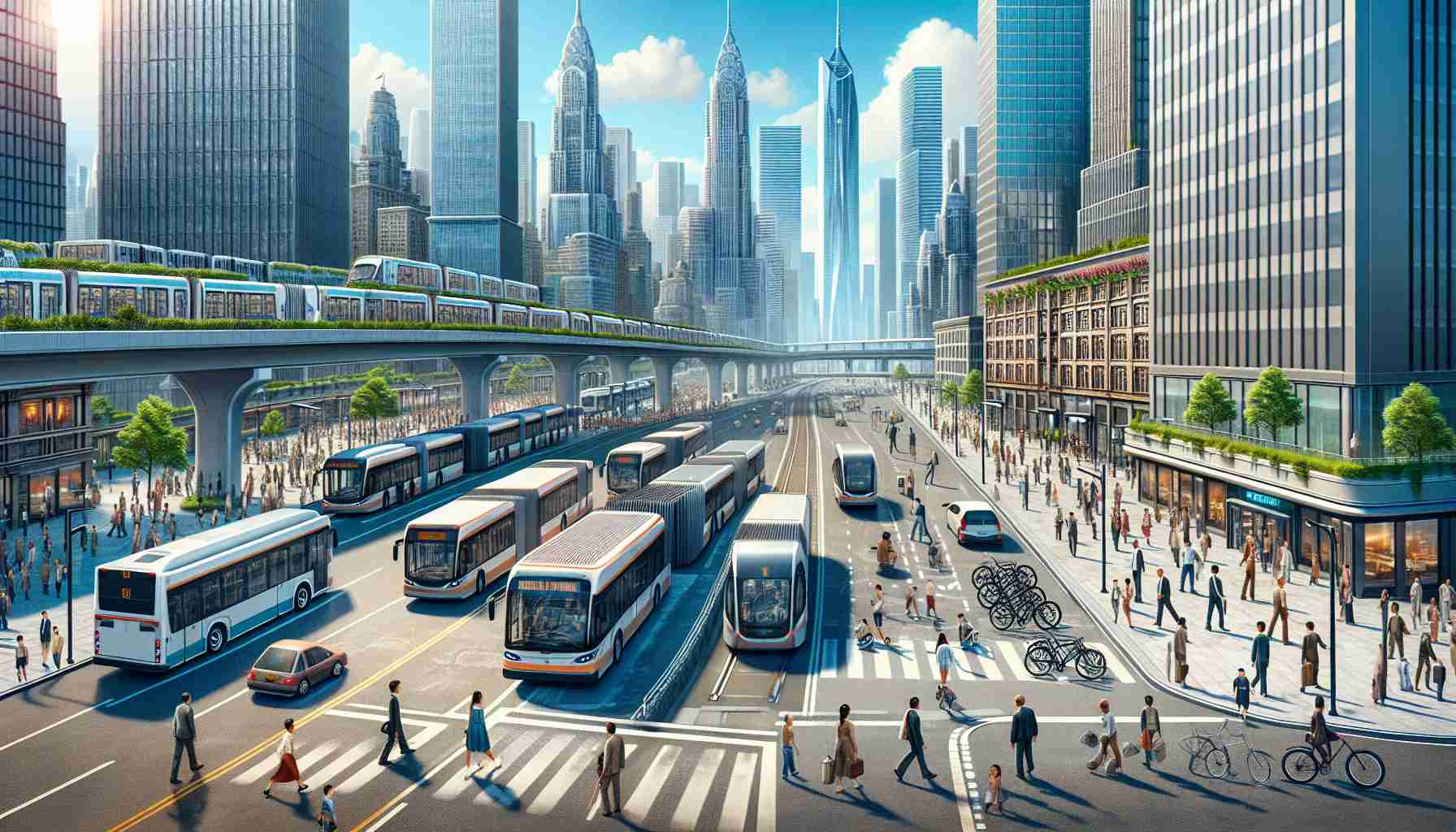
Solaris, a leading manufacturer in sustainable transportation, has made a groundbreaking agreement with King County Metro. On December 23, the company secured a significant contract to supply the Metro with pure zero-emission buses (ZEBs), marking a historic milestone as their inaugural venture into ZEBs within the United States.
This significant collaboration is set to transform public transit in the area, as these eco-friendly buses are scheduled for delivery in the latter half of 2026. The introduction of these buses is not just a step towards reducing emissions, but it also aligns with broader initiatives aimed at fostering cleaner, greener urban environments.
This agreement underscores the increasing demand for sustainable transport solutions across the nation. As cities grapple with the challenges posed by climate change and urban pollution, many are turning to zero-emission technologies as a viable alternative to conventional public transit systems.
The decision by King County Metro to partner with Solaris highlights its commitment to modernizing its fleet and enhancing public transit efficiency. By integrating these innovative buses, King County aims to set a precedent for other cities to follow, showcasing the potential of zero-emission vehicles in improving air quality and creating a sustainable future for public transportation.
With this strategic move, the future of urban mobility looks promising, as more municipalities look to invest in eco-friendly solutions that benefit both the community and the environment.
Revolutionizing Urban Transit: Solaris and King County Metro’s Historic Zero-Emission Bus Deal
# Solaris Partners with King County Metro for Sustainable Transport
In an ambitious step towards enhancing public transportation sustainability, Solaris, a prominent manufacturer in the zero-emission bus market, has landed a transformative contract with King County Metro. This agreement, finalized on December 23, marks a pivotal moment as it signifies Solaris’s first foray into the U.S. market for zero-emission buses (ZEBs).
Features of the Zero-Emission Buses
The buses slated for delivery in the latter half of 2026 are designed with advanced electric propulsion systems, integrating state-of-the-art technology for energy efficiency and performance. These buses not only produce zero tailpipe emissions but are also equipped with features aimed at passenger comfort and safety, including:
– Low floor design for easy accessibility
– Advanced battery systems for extended range and operational efficiency
– Sustainability-focused materials used in construction to reduce environmental impact
Pros and Cons of Zero-Emission Buses
Pros:
– Reduced Emissions: Significantly lowers greenhouse gas emissions compared to traditional diesel buses.
– Lower Operating Costs: Electric buses often have lower fuel and maintenance costs.
– Enhanced Passenger Experience: Equipped with modern amenities for a more comfortable ride.
Cons:
– High Initial Investment: Electric buses typically require a larger upfront cost.
– Infrastructure Needs: There is a need for adequate charging infrastructure to support expanded electric fleets.
– Range Limitations: Depending on battery technology, some electric buses may have a more limited range compared to diesel counterparts.
Insights and Market Analysis
This agreement highlights a growing trend across urban transit systems in the United States, reflecting a nationwide push towards cleaner transport technologies. With cities facing heightened levels of pollution and climate change concerns, the demand for zero-emission solutions is on the rise. King County Metro’s commitment to integrating these innovative buses exemplifies how municipalities can lead the charge in environmental stewardship.
Sustainability Trends
As public awareness of climate impacts increases, cities across the U.S. are actively seeking sustainable transport solutions. Notably, cities like Los Angeles, New York, and Seattle are also on similar paths, moving towards electrification of their bus fleets.
Predictions for the Future
With the successful deployment of ZEBs like those provided by Solaris, urban transit can anticipate significant improvements in air quality and commuter satisfaction. Additionally, as technology advances and infrastructure improves, electric buses are expected to become more prevalent, potentially reshaping the future of public transportation.
Conclusion
The partnership between Solaris and King County Metro is a significant milestone in the quest for sustainable urban mobility. It sets a compelling example for other cities to follow, potentially leading to a greener and healthier environment.
For further details on the emerging trends in sustainable transportation, visit Solaris Bus.



